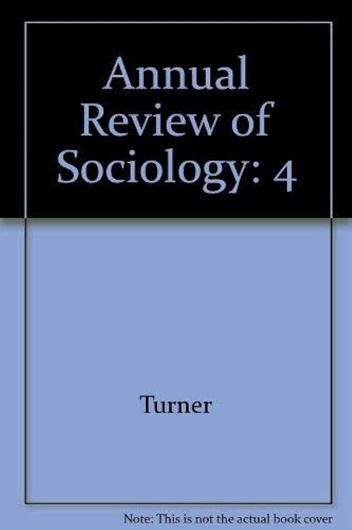Automation and Augmentation: Artificial Intelligence, Robots, and Work
IF 8.9
1区 社会学
Q1 SOCIOLOGY
引用次数: 0
Abstract
This article reviews the literature that examines the potential, limitations, and consequences of robots and artificial intelligence (AI) in automation and augmentation across various disciplines. It presents key observations and suggestions from the literature review. Firstly, displacement effects from task automation continue to persist. However, one should not assume an unequivocally increasing efficacy of technology in automation or augmentation, especially given the declining productivity growth in high-income countries and some large emerging economies in recent decades. Jobs less likely to be negatively impacted are those that require diverse tasks, physical dexterity, tacit knowledge, or flexibility, or are protected by professional or trade associations. Despite countervailing effects, without policy intervention, automation and augmentation could widen inequality between social groups, labor and capital, and firms. Secondly, AI's promise in task automation and labor augmentation is mixed. AI tools can cause harm, and dissatisfaction and disengagement often arise from their opaqueness, errors, disregard for critical contexts, lack of tacit knowledge, and lack of domain expertise, as well as their demand for extra labor time and resources. The inadequate autonomy to override AI-based assessments further frustrates users who have to use these AI tools at work. Finally, the article calls for sociological research to specify conditions and mechanisms that ameliorate adverse consequences and enhance labor augmentation by embedding the study of automation and augmentation in concrete social and political contexts at multiple levels.自动化与增强:人工智能、机器人与工作
本文回顾了研究机器人和人工智能(AI)在各学科自动化和增强方面的潜力、局限性和后果的文献。文章提出了文献综述中的主要观点和建议。首先,任务自动化带来的迁移效应依然存在。然而,我们不应假定技术在自动化或扩增方面的功效会明显提高,特别是考虑到近几十年来高收入国家和一些大型新兴经济体的生产率增长不断下降。不太可能受到负面影响的工作是那些需要多样化任务、身体灵活性、隐性知识或灵活性,或受到专业或行业协会保护的工作。尽管有抵消效应,但如果没有政策干预,自动化和增强技术可能会扩大社会群体、劳动力和资本以及企业之间的不平等。其次,人工智能在任务自动化和劳动力增强方面的前景喜忧参半。人工智能工具可能会造成危害,其不透明、错误、无视关键背景、缺乏隐性知识、缺乏领域专业知识以及对额外劳动时间和资源的需求往往会引起不满和脱离。由于没有足够的自主权来推翻基于人工智能的评估,这进一步挫伤了必须在工作中使用这些人工智能工具的用户的积极性。最后,文章呼吁开展社会学研究,通过在多个层面上将自动化和增强劳动力的研究嵌入具体的社会和政治背景中,明确改善不良后果和增强劳动力的条件和机制。
本文章由计算机程序翻译,如有差异,请以英文原文为准。
求助全文
约1分钟内获得全文
求助全文
来源期刊

Annual Review of Sociology
SOCIOLOGY-
CiteScore
18.70
自引率
1.90%
发文量
26
期刊介绍:
The Annual Review of Sociology, established in 1975, provides comprehensive coverage of significant developments in the field of sociology. The journal encompasses a wide range of topics, including major theoretical and methodological advancements, as well as current research across major subfields within sociology.
Topics Covered:
Social Processes
Institutions and Culture
Organizations
Political and Economic Sociology
Stratification
Demography
Urban Sociology
Social Policy
Historical Sociology
Major Developments in Sociology in Other Regions of the World
Content:
Review chapters within the journal typically delve into these topics, offering in-depth analyses and insights into various aspects of sociology. These chapters serve to provide readers with a comprehensive understanding of the field's current state and recent advancements.
 求助内容:
求助内容: 应助结果提醒方式:
应助结果提醒方式:


